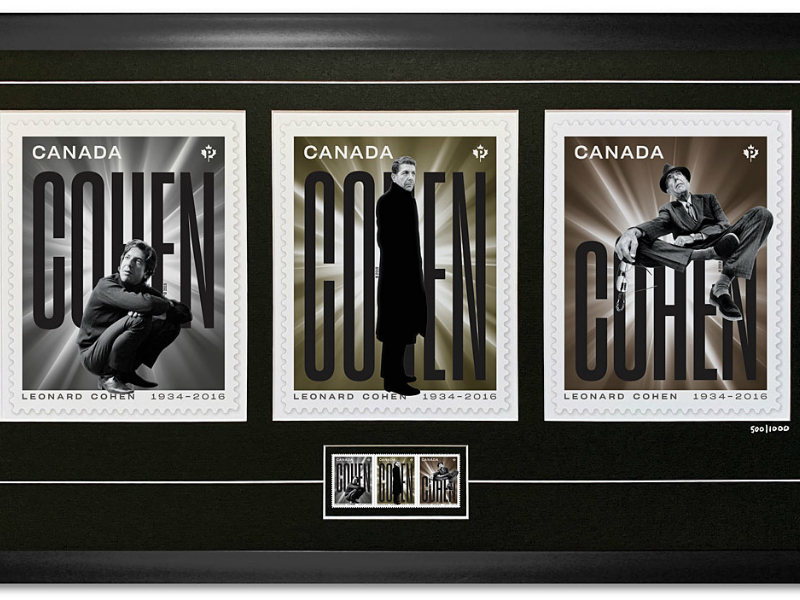I’ve been a serious fan of Leonard Cohen since I was around 16 years old. I would sit in my living room, drinking in that low voice singing about love, about someone named Suzanne and another called Marianne. Over the years, I acquired a particular regard for Cohen’s many songs containing Jewish imagery and language. I’ve come to think of our late, magnificent treasure as a Jewish theologian.
Leonard Cohen surely was not a philosopher working out a system based on the Jewish thought. Instead, in his poetic and romantic way, he thought seriously about God, and God’s relationship with humanity. Though they employ Jewish notions, these ideas create an untraditional – perhaps even radical – view of the Divine-human relationship.
His song, “Who by Fire,” riffs on the prayer Unetaneh Tokef, recited on Rosh Hashanah and Yom Kippur. The text asks, essentially, who will be gone from this earth the next time we meet on the High Holidays, and by what ghastly means might this happen. Cohen’s song similarly asks who will be gone this time next year, citing a number of horrible means the original prayer does not articulate: “Who in her lonely slip, who by barbiturate … who by avalanche, who by powder.” In this way, he contemporizes the classical liturgical questions.
But far more important, each verse ends with the question, “And who shall I say is calling?”
Cohen’s version doesn’t allow for religious acts that can alter our fate or the world; there is no mention of repentance, prayer or charity, as in the original. It is not about taking control of one’s life, nor is it about Divine intervention (or punishment). Rather, Cohen voices the ambiguous question: is there anyone out there, or are we on our own? Maybe someone’s calling, maybe not.
A similar theme appears in, “If It Be Your Will.” The title reflects Cohen’s adaptation of a line that begins many Hebrew prayers, “Y’hi ratzon m’lifanecha,” usually translated as, “May it be Your will.” Beneath the song’s undeniable beauty and its shard of hope lies an abiding melancholy over the changeless, tragic condition of the world. The song concludes:
“If it be your will/If there is a choice/Let the rivers fill/Let the hills rejoice./Let your mercy spill/On all these burning hearts in hell/If it be your will/To make us well.”
These prayerful words reveal Cohen’s deep humanism. Let God’s mercy pour onto the world, he says (without ever naming God), but only if it is God’s will, if God has a choice.
“Anthem” also grieves for a broken world engulfed in the permanency of war:
“Yeah the wars they will/Be fought again/The holy dove/She will be caught again/Bought and sold/And bought again/The dove is never free.”
But the song’s refrain is an extraordinary poetic assertion of hope that sneaks out of the damaged human condition:
“Ring the bells that still can ring/Forget your perfect offering/There is a crack in everything/That’s how the light gets in.”
The human condition is inescapably broken, Cohen explains. And yet, out of that reality, holiness is possible. Forget the perfect offering, the requirement for a sacrifice in the ancient Temple, he urges, for our inevitable imperfection admits the light, empowering us to resist the corruption surrounding us and granting a sanctified existence. The light that sneaks in through the very cracks of our human frailty sanctifies our existence.
Cohen’s uncertainty about the Divine and his anger at the condition of the world is also evident on his final album, You Want it Darker, but his resignation, born of the approach of death, also emerges. On the title track, he intones:
“Magnified, sanctified, be thy holy name/Vilified, crucified, in the human frame/A million candles burning for the help that never came/You want it darker
Hineni, hineni/I’m ready my Lord.”
This is the first line is from the Mourner’s Kaddish – “Yitgadal, v’yitkadash, shm’eh rabba” – but it’s coupled with “vilified, crucified, in the human frame.” And what is the condition of the world Cohen is leaving? “A million candles burning for the help that never came.” Whether this is a Holocaust reference is unclear, but it doesn’t matter. The candles burn for millions left helpless, because God was absent. The help never came (and it never will).
Does this mean the world is completely empty of the Divine? No. “Hineni,” Cohen whispers, addressing God, “I’m ready.” The end is swiftly approaching, but not necessarily a void.
Leonard Cohen takes us on a difficult journey searching for transcendence. It’s an arduous trip, a million candles burning in hope of rescue that never comes; the agony of hearts trapped in hell; the end of a poet’s life. Yet between the cracks, light peeks in, offering hope for a troubled world and the possibility of the Divine that might in some way be here, after all.
